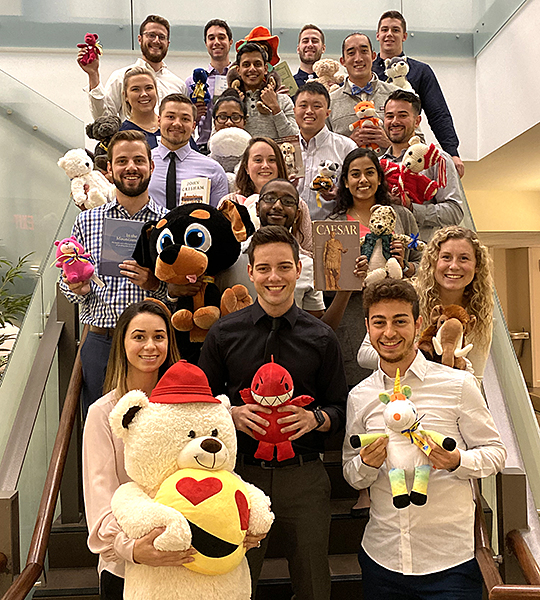The Master of Science in Biomedical Science Volunteer Patient Advocate Assistants will hold a stuffed animal and book drive Tuesday through Thursday, Oct. 29 to 31, from 11 a.m. to 2 p.m. in The University of Toledo Medical Center Four Seasons Bistro.
The volunteer student group works throughout The University of Toledo Medical Center, with much of their time spent in the Emergency Room. Students who see patients in the ER know that a stuffed animal can make a difference in a child’s experience while those that see patients throughout the medical center can attest to the joy and accompaniment a book can bring a patient throughout their care at the hospital.

Master of Science in Biomedical Science Volunteer Patient Advocate Assistants showed off some of the stuffed animals and books they collected during a previous drive.
All stuffed animal donations must be new, and books of all reading levels should be new or gently used. Monetary donations also will be accepted. All proceeds will be used to purchase stuffed animals for pediatric patients in the UTMC Emergency Department. This is the third year for the program.
Many of the group’s members plan to attend medical school.
“As patient advocates, we aim to facilitate improved medical care by advocating for the patients we come in contact with,” said Mirlinda Elmazi, a Master of Science in Biomedical Science Volunteer Patient Advocate Assistant. “We do this by improving doctor-patient communication with explanations of complicated medical concepts in terms that patients can understand. We hope to leave the program with effective communications skills so that, as physicians, we are able to better communicate with our patients and provide them with the best possible care.”